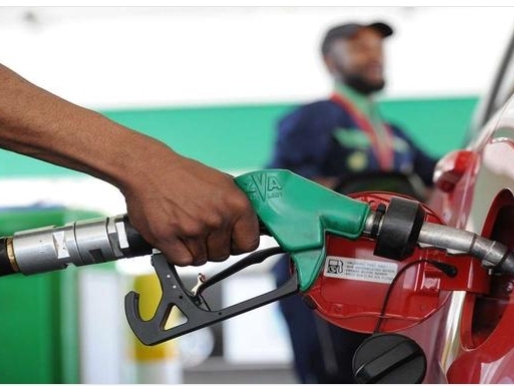Port Harcourt Refinery: Petrol Price Crash
Marketers have welcomed the roll out of premium motor spirit (PMS) from the Port Harcourt Refinery, saying it would deepen competition, ensure product availability and price reduction.
Exactly 11 months after the mechanical completion of the old Port Harcourt refinery, trucks began loading of petroleum products, signalling the commencement of crude oil processing from the plant and delivery of petroleum products into the market.
Ibom Focus gathered that about 100 trucks lined up to load petrol from the refinery on Thursday.
The Nigerian National Petroleum Company Limited (NNPCL) on Thursday disclosed that it has commenced loading petroleum products which include Premium Motor Spirit (PMS) also known as petrol, Automotive Gas Oil (AGO) or diesel and Household Kerosene (HHK) or Kerosene, while other product slates will be dispatched as well.
Speaking during a brief ceremony to mark the commencement of products loading at the refinery in Port Harcourt, the NNPCL Group CEO, Mr. Mele Kyari, described the commencement of the load out activities as a monumental achievement for Nigeria which signifies a new era of energy independence and economic growth for the country.
Excess supply will crash price –MEMAN
The Executive Secretary of the Major Energy Marketers’ Association of Nigeria (MEMAN), Clem Isong, in a chat with one of our correspondents said the association had always advocated for price competition.
He said: “We are advocating for diversification of supply, multiple supply sources and we are advocating for open market competition and price competition.
“Our advocacy is product availability, product accessibility, product affordability and price competition. That is the crux of our advocacy.”
On its part, the Independent Petroleum Marketers Association of Nigeria (IPMAN) said it was excited about the roll out of PMS from the Port Harcourt refinery by the NNPCL.
Members of the association said they were optimistic that the development would engender competition and ultimately lead to price reduction.
The National Public Relations Officer of IPMAN, Alhaji Olanrewaju Okanlawon, said while the price of PMS had not changed, the development would eventually bring about price reduction.
He said: “They (NNPCL) have not come up with any price but that is the beauty of deregulation and that means competition is already here.
“The implication of it is that the major issue about the economy is demand and supply and when there is surplus of supply, it will reduce the price. When there is excess supply, it will definitely crash the price. The NNPCL is producing, Dangote is producing, the price will come down and it would be to the benefit of Nigeria,” he said.
100 trucks on queue
The National President of the Petroleum Retails Outlets Owners Association of Nigeria (PPROOAN), Billy Grills Harry, said that about 100 trucks had lined up at the loading bay of the Port Harcourt refinery complex to lift various types of petroleum products.
Harry, who spoke to our correspondent in Port Harcourt, said all the 18 loading bays at the refinery had been reactivated while over 100 trucks had assembled to start lifting petroleum products.
He said he was invited in his capacity as the National President of the PPROOAN to witness the resumption ceremony, adding that the development would bring an end to scarcity of petroleum products.
Only NNPC trucks loading PMS now –IPMAN
Also speaking on the development, the Chairman of IPMAN, Abubakar Maigandi, told one of our reporters that only NNPCL trucks are loading the product at the moment.
He said: “We are excited about the development but we have not been invited as of this time. We are currently getting products from the Dangote refinery.
“We currently have no information about pricing, but we will get a clearer indication as we monitor the prices at the NNPCL retail stations.”
Back to life after long hiatus
The Old Port Harcourt Refinery (OPHR) was commissioned in 1965, with a capacity of 35,000bpd, which rose to the current capacity of 60,000bpd after de-bottlenecking in 1972.
The New Port Harcourt Refinery (NPHR) was commissioned in March 1989 and has a capacity of 150,000bpd.
Speaking on his X handle, the Special Adviser on Public Communications and Orientation to the President, Sunday Dare, said: “About 200 trucks are expected to load products daily from the refinery renewing the hopes of Nigerians.”
The commencement of production at the Port Harcourt refinery comes after a series of failed deadlines.
In 2021, the federal government approved $1.5 billion (1.2 billion euros) to repair the plant, one of the country’s biggest refineries which was shut down two years before then.
Giving a breakdown of the operating capacity, Olufemi Soneye, Chief Corporate Communications Officer of NNPC ltd said the refinery is currently producing a Straight-Run Gasoline (Naphtha): Blended into 1.4 million liters of Premium Motor Spirit (PMS or petrol). Kerosene: 900,000 liters; Automotive Gas Oil (AGO or Diesel): 1.5 million liters; Low Pour Fuel Oil (LPFO): 2.1 million liters and Liquefied Petroleum Gas (LPG): Additional volumes.
Tinubu directs NNPCL to reactivate Warri, Kaduna refineries
President Bola Ahmed Tinubu has congratulated the NNPCL on the successful revitalisation of the Port Harcourt refinery and commencement of petroleum products loading.
Tinubu, who acknowledged the role of former President Muhammadu Buhari in initiating the comprehensive rehabilitation of the refinery and others across the country, expressed gratitude to the African Export-Import Bank for its confidence in financing the project.
Bayo Onanuga, Special Adviser to the President on Information and Strategy, in a statement, said with the successful revival of the Port Harcourt refinery, President Tinubu urged the NNPCL to “expedite the scheduled reactivation of the second Port Harcourt refinery and the Warri and Kaduna refineries.
“These efforts will significantly enhance domestic production capacity alongside the contributions of privately-owned refineries and make our country a major energy hub, with the gas sector also enjoying unprecedented attention by the administration,” the statement said.


